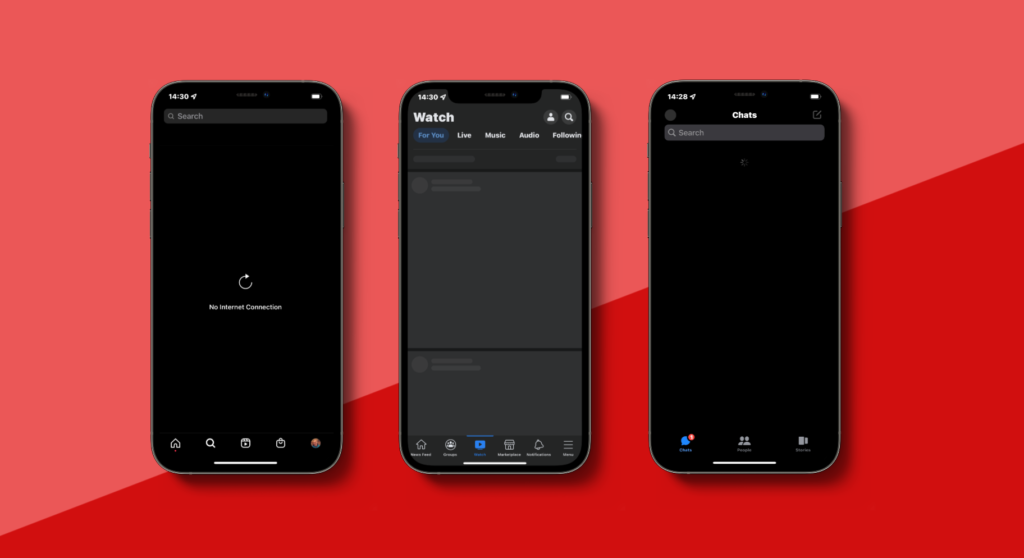
Time is money
Social media users were unable to access websites owned by Facebook for over six hours in the Oct. 4 outage. This cut off both social and professional communication within the sites for over two billion people, including digital media professor Andrew Tingley and his students.
The outage cost Facebook an estimated $65 million and, according to Tingley, emphasized the need for media variation.
“If you choose to focus on a social media or digital marketing strategy, it’s a really good idea to diversify as much as possible,” Tingley said.
Tingley’s online media management course uses social networks such as Instagram, bought by Facebook in 2012, to spread the word about in-class programs.
Cheyenne Brown, a junior in the television and digital media program, was unable to upload graded promotional Instagram posts before their deadline. It was also difficult for her to contact her parents, whose poor cellular service prompts them to mainly communicate through Messenger.
“The outage not only effected my communication, but also prevented me from doing assignments for class,” Brown said.
TechWyse stated that Facebook acquired 85 different companies since its inception in 2004. The interconnectedness of these platforms worries Tingley, as over 3.51 billion people use at least one of the company’s four main products.
“WhatsApp, [Messenger], Instagram and Facebook, why are they all built off of the same exact infrastructure? And the outage affected all of them equally, that’s what really kind of startles me,” Tingley said.
Facebook released a public apology regarding the “cascade of errors” that led to the outage.
“To all the people and businesses around the world who depend on us, we are sorry for the inconvenience caused by today’s outage across our platforms. We’ve been working as hard as we can to restore access, and our systems are now back up and running” it reads.
Tingley believes that businesses using Facebook profiles rather than a personal webpage for consumer communication are at risk.
“If Facebook goes down for a few hours, people searching for their contact information or location simply can’t find out about that business, right? So we really encourage that businesses have [their] own platform, they have their own website that they update.”
Facebook itself, however, will most likely move on from this event rather unscathed. Alex Cartwright, assistant professor of economics, explained that the $65 million loss in advertising revenue amounted to less than one percent of the company’s estimated yearly earnings. Facebook stock has yet to recover from the eventful week, dropping 13% in the month of October. Cartwright suspects that this is due to regulatory uncertainty, rather than the outage.
“The recent whistleblower has brought a lot of scrutiny on the company, and there is bipartisan support in Congress to somehow change Facebook’s business practices, which may hurt its profits. Uncertainty scares investors,” Cartwright said.
Facebook v. Frances
On Oct. 3, one day before the outage, Frances Haugen came out as the “Facebook Whistleblower” on 60 Minutes.
Haugen, former employee of Facebook, anonymously reported the company to federal law enforcement for hidden knowledge. The complaints filed by Haugen explain that Facebook is aware of its tendency to boost hate, spread misinformation and amplify political unrest.
As explained in the thousands of pages of inside research Haugen collected as an employee, Facebook is dishonest in their promise of user safety.
“…we estimate that we may action as little as 3-5% of hate and about 6-tenths of 1% of V & I [violence and incitement] on Facebook despite being the best in the world at it,” one report reads.
Two days later, Haugen presented the matter to a Senate subcommittee.
“I am here today because I believe that Facebook’s products harm children, stoke division, weaken our democracy and much more,” Haugen said.
Subcommittee Chair Richard Blumenthal, D-Conn., commented on the effects social media platforms have on the body image and wellbeing of young users.
“Facebook exploited teens using powerful algorithms that amplified their insecurities,” Blumenthal said. “I hope we will discuss as to whether there is such a thing as a safe algorithm.”
Haugen maintained the stance that Facebook and Instagram are aware of the action that must be taken to solve this issue.
“The company’s leadership knows ways to make Facebook and Instagram safer and won’t make the necessary changes because they have put their immense profits before people. Congressional action is needed. They cannot solve this crisis without your help,” Haugen said.
Political science professor Christina Eanes believes that social media accelerates division, and that media companies profit from this division.
“… not many people know how to conduct civil discourse over difficult topics,” Eanes said. “We are not explicitly taught these skills, though they are essential to democratic function. In schools, families, difficult topics are avoided to prevent conflict. So when given a platform to discuss these topics, people lack the experience to navigate them.”
Despite bipartisan unity on the matter, Eanes does not believe it is the government’s role to regulate or moderate these platforms.
